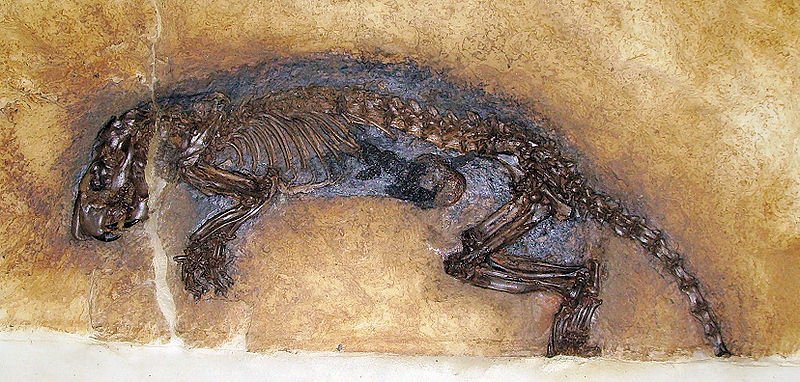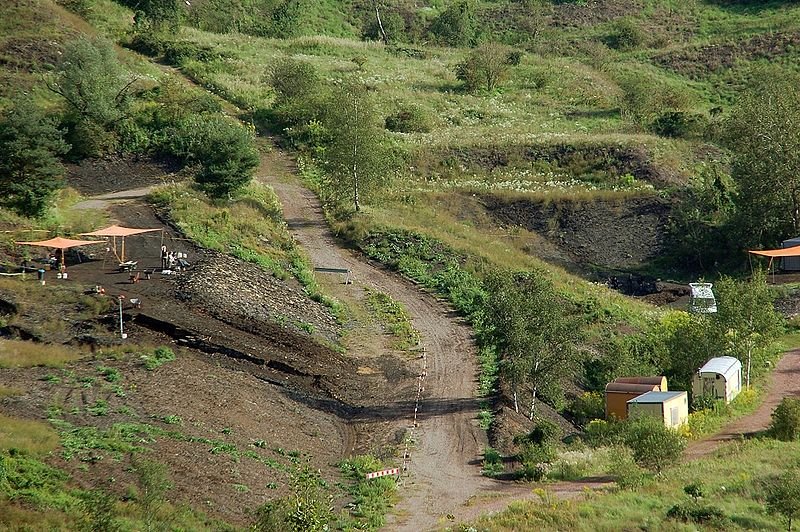 Fossilized animal from the Messel Pit
Fossilized animal from the Messel PitSource: https://commons.wikimedia.org/wiki/File:Masillamys_Senckenberg_2007-01.JPG
Author: Gerbil

The Messel Pit Fossil Site is a disused quarry in the village of Messel, Darmstadt-Dieburg, Hesse, about 35 km southeast of Frankfurt-am-Main, Germany. The quarry used to be a mine since 1859, when brown coal and later bituminous shale were mined. By the 1900's, it became well known for a different reason, when it began to yield fossils. Nevertheless, mining continued until as late as 1971, when the shale mine finally closed, and a cement factory built in the quarry also failed.
After the quarry became disused, there was a plan to turn it into a garbage dump. Fossil enthusiasts were allowed to dig in the quarry. These amateurs developed a technique to preserve the fine details on small fossils. In time, the Messel Pit became known as the richest site for fossils from the Eocene period, which was between 57 million and 36 million years ago.
Today scientists have uncovered exceptionally well-preserved fossils of mammals, including fully articulated skeletons to the contents of the stomach of animals from that period.
In 1995, Messel Pit Fossil Site became the first site to be inscribed as a World Heritage Site solely due to fossils. It took place at the 19th session of the World Heritage Committee held in Berlin, Germany, on 4-9 December, 1995.
 Messel Pit Fossil Site, Germany
Messel Pit Fossil Site, GermanySource: https://commons.wikimedia.org/wiki/File:Grube_Messel_fg05.jpg
Author: Fritz Geller-Grimm

World Heritage Site Inscription Details
Location: N 49 55 0.012 E 8 45 14.004Inscription Year: 1995
Type of Site: Natural
Inscription Criteria: VIII
 Latest updates on Penang Travel Tips
Latest updates on Penang Travel Tips

Copyright © 2003-2025 Timothy Tye. All Rights Reserved.

 Go Back
Go Back